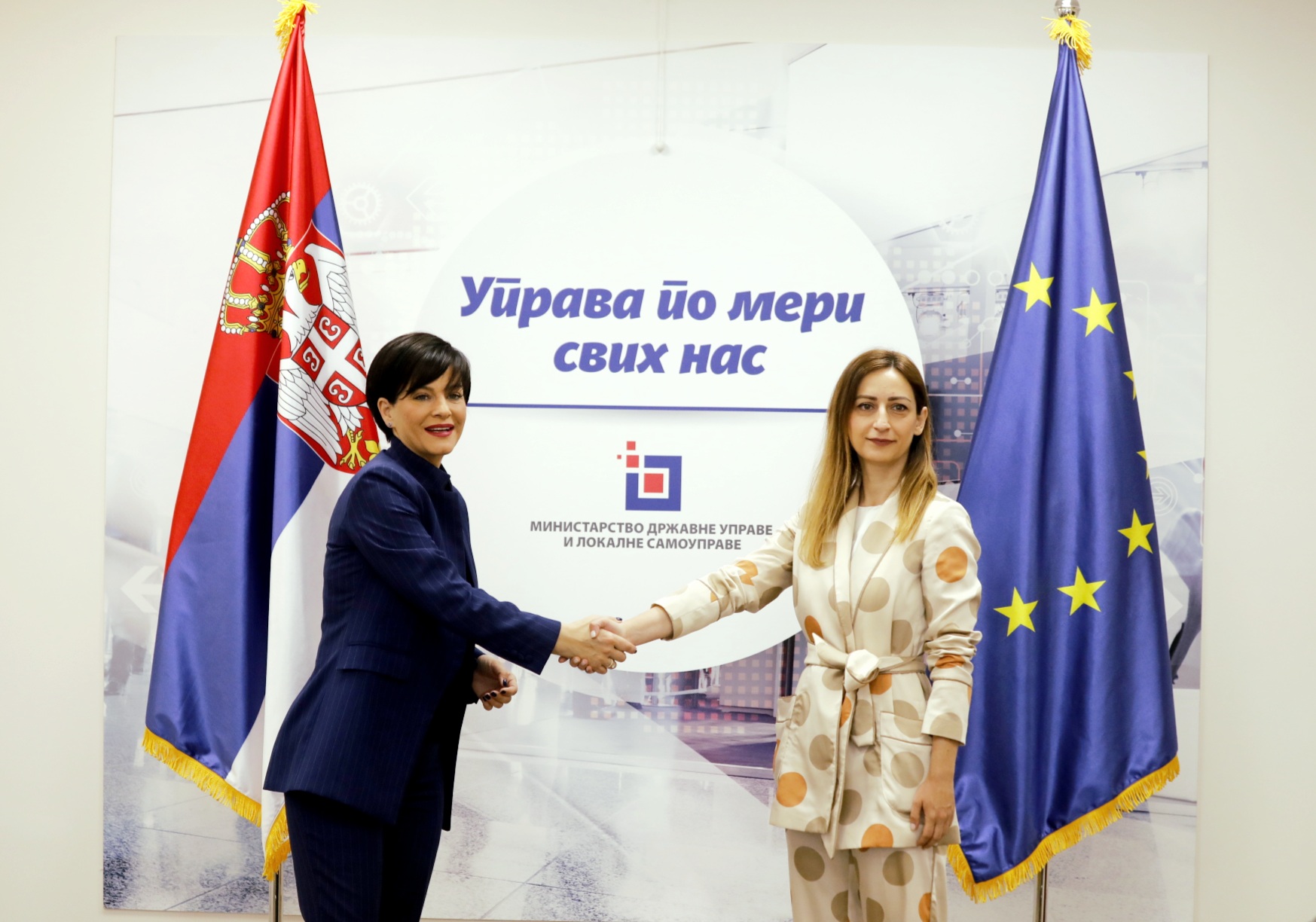
The Regional School of Public Administration (ReSPA) should be programmatically innovated in order to be a better service to member states, and their public administrations a better service to their citizens – this was a conclusion reached at today’s meeting between the Minister of Public Administration and Local Self-Government, Marija Obradović, and newly elected Director of ReSPA, Maja Handjiska Trendafilova.
“Although the Government of the Republic of Serbia is in a technical mandate, it is important for me that MDULS functions, especially bearing in mind that cooperation with ReSPA has been going on for many years and that we, as a country, are very interested in continuing and improving the cooperation with this organization. ReSPA is not generally known to the public in the region, but the effects of what it does are important, so that they would be recognized and the public would understand them,” Minister Obradović has said.
She has added that Serbia also wants to strengthen its position in this regional initiative, both politically and in terms of personnel, having in mind the specifics of its public administration, especially at the level of Local Self-government Units. She has added that the cooperation with ReSPA has been good so far, but that it needs to be less bureaucratic and more practical in the future, with a special emphasis on the European path of the region, which should be made more visible to the citizens.
The Director of ReSPA, Maja Handjiska Trendafilova, has thanked MDULS and the line minister for recognizing ReSPA and the mechanisms and instruments it possesses and which it will make available to member states, with the aim of making their public administrations a better service to their citizens. She has pointed out that, as the new director of ReSPA, she wants to programmatically innovate her organization, especially in the field of European integration and the implications of this process for the reform of public administrations in the member states of ReSPA. It is also extremely important that the current good practices communicate, in a right way, with the public of the entire region, as well as for ReSPA to dedicate itself to what it was founded for in its further work, and that is the education of public administration staff, in order to strengthen human resources in the region.
Potential models of future cooperation between Serbia and ReSPA have also been discussed at the meeting, especially at the local level, as well as cooperation between regional schools and academies for training of civil servants, both among themselves and with relevant institutions in EU Member States.
In November of last year, Serbia had concluded its one-year presidency over ReSPA, which was assessed as successful at the 13th meeting of the organization’s board at the ministerial level, bearing in mind that all planned activities have been carried out in that period, and above all that it successfully responded to the challenges of the COVID-19 pandemic.
The members of the Regional School of Public Administration (ReSPA) are the Republic of Albania, Bosnia and Herzegovina, the Republic of North Macedonia, Montenegro and the Republic of Serbia, as well as representatives of the European Commission, who have observer status, while one of its main goals is to encourage regional cooperation and focus on public administration reform processes in the Western Balkans.



